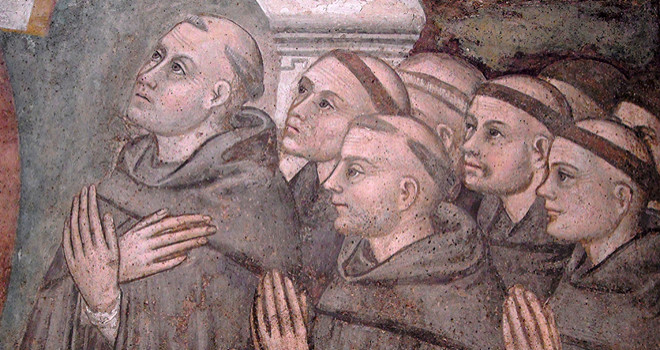Guest Post by Joseph Bailey
It’s hard to measure the significant impact of Benedictine monasteries upon the church and Western culture. At a time of tremendous upheaval, uncertainty, and dark paganism in Europe, these tiny communities living under the Rule set forth by St. Benedict both preserved the light of Scripture and learning and, at the same time, advanced the light of the gospel within the gates of Germanic warrior culture.
While it was far from neat and tidy in its efforts, the monastic movement sought to lay down roots of biblical living within the fertile ground of paganism that would produce a spiritual vineyard to choke out the weeds of worldliness. Far from being isolationist, they were on a reclamation project- reclaim the truth of Scripture, reclaim the life of holiness, reclaim the earth under its rightful lord, King Jesus.
St. Benedict states at the end of his Rule that this way of life was not meant as an end in itself. He set down a blueprint of monastic life that was meant for beginners, to begin the process of true discipleship. It was not for the chosen few who were super-saints. It was to lay a foundation of biblical community that could (and did!) overcome the darkness around it.
Benedictine Monks were to live a life centered around the gospel rhythm of worship and work. Ora et
So what does all this have to do with monastic frat boys? Well, I started thinking the other day of what we have in our culture that most resembles the structure of a Benedictine monastery. And the closest I could come was college life. In the four-plus years of life on a college campus, students are discipled to go out into the world by first living together in community.
So while England was transformed by the gospel into a culture of truth, goodness, and beauty for centuries to come, what does it say about the future of our own culture that we are training up a generation of men (and women) who have been shaped by a different Rule where opinion and banality and activism and the rhythms of pop culture are the air they breath?
Mr. Bailey teaches at the Geneva Academy in Monroe, LA. You can visit Bailey’s blog.














